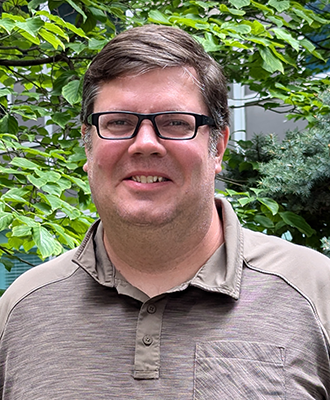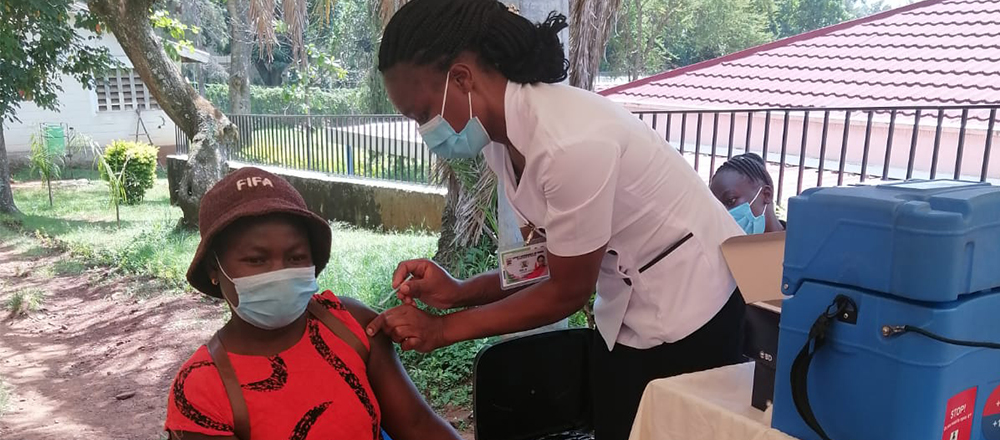
It was an evening so hot that the only reason to be at the Independence Athletic Complex ballpark was if you loved baseball or loved someone who played baseball. Teresa Scobee-King, BSN, RN, CPAN, was there to watch her husband Jim, a catcher in a senior softball league.
Teresa settled into her spot on the bleachers, comforted by the rhythm and sounds of the games she took in up to three times a week during the summer. Suddenly, something caught her ear that broke those rhythms. A murmur of disturbance. Then the cry came for a doctor or nurse.
“I think it’s something ingrained in a lot of hospital workers,” said Teresa, who works in Pavilion PreOp and Recovery at North Kansas City Hospital. “When you hear the call, you don’t even hesitate, you just go. You don’t even think about it.
She came upon a man in his late 70s, lying on his back in the gravel infield, near first base. Teresa could tell he needed immediate help. An individual was administering chest compressions, but she saw he was getting tired, so Teresa took over.
“I just knelt down in the gravel infield and went to work,” Teresa said. “I didn’t put a towel down or anything. I didn’t realize what I was kneeling on until I got up and felt the grit in my knees.”
Fortunately, someone brought over an AED (automated external defibrillator) while Teresa was doing chest compressions.
Teresa administered mouth-to-mouth resuscitation for close to 30 minutes and defibrillated the man three times with the help of another fan.
“That the baseball complex had AEDs was the key,” Teresa said. “Even though I did CPR, if we hadn’t defibrillated him, it wouldn’t have been successful.”
While Teresa was performing CPR, teammates dialed 911, called the man’s family, got a list of his medications and waited near the road to direct emergency responders back to the right ball field. “Everybody was trying to cheer him on,” Teresa said. “I heard some prayers and saw teammates holding hands.”
The slightly responsive man received Teresa’s attention as she diligently administered CPR until she felt three strong taps on her back.
“When I felt those taps and turned around and saw a police officer,” Teresa said, “that’s when I knew I could stop.”
The man was loaded into an ambulance and taken to Centerpoint Medical Center. As the flashing red lights receded, the emotion of the evening hung around like the sticky, wet humidity in the air. The car ride home was quiet. Teresa and Jim both said prayers for the man.
“I had a hard time going to sleep,” Teresa said. “I kept thinking about the scenario, replaying what had happened. I woke up thinking about it.”
Teresa didn’t mention the previous night’s events to her coworkers the next day, but they found out when a softball coach called Teresa’s supervisor, Andrea Breeze.
“I went to lunch and when I came back my manager was standing in the recovery room, surrounded by nurses,” Teresa said. “She said ‘Here she is, our hero. I heard what you did last night. You’re a hero.’ Then they told me that the man had a cardiac event but made it.”
Teresa isn’t comfortable with the word hero, but she’s going to have to get used to it for a while. She hopes to visit the man she saved.
“It changes you to see people in that very vulnerable state,” Teresa. “That’s just where I was supposed to be.”



